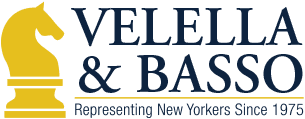Most people get the concept of Guardianship. Likewise, most people are familiar with the “Power of Attorney.” Generally, both are legal statuses that allow us to make important life decisions for another.
But, have you ever considered the difference? Or, when one is one more appropriate than the other? We discuss below.
Guardianship
In order to become a Guardian, you must file a case with the Supreme Court and obtain a Judgment. Any powers granted to a Guardian comes from a Judge.
Usually, a New York Guardian will seek guardianship of a minor or an incapacitated adult. Sometimes, the Court will even appoint a Guardian for an adult who is not incapacitated. New York calls the latter “Persons in Need of Guardian.”
What powers does a New York Guardian have? Well, it depends. A Guardian of the Person makes decisions about personal affairs, like schooling and medical care. A Guardian of the Property makes decisions about financial matters. Often, one person acts as both.
Indeed, Guardianship is a legal proceeding, like a lawsuit. It requires hearings and expertise on rules of evidence. It also requires knowledge of New York statutes and case law.
Notably, other people- like the “ward” (the person over whom Guardianship is sought) or a court-appointed evaluator- may oppose your petition. Then, Guardianship becomes like full-on litigation.
Moreover, your court obligations don’t end once you’re appointed Guardian. You will need to keep and file diligent accounting and prepare motions to approve certain expenses. Any misstep can expose you to civil penalties or liability.
For all of the above reasons, we strongly recommend that you consult a New York Guardianship attorney if you’re considering becoming a Guardian.
Power of Attorney
Power of attorney is an authority granted to someone by a legal document. The key difference here is that the “principal” voluntarily gives his “agent” decision-making power, without involving the courts.
Of course, this means that the principal must have capacity to execute a Power of Attorney form (“POA”). Contrast this with a Guardianship, where an agent is usually applying AFTER loss of capacity.
There are generally two types of POAs in New York. A springing power of attorney “springs” into action if you become incapacitated. A durable power of attorney is effective as soon as you sign the document, and continues to be effective if you are incapacitated.
Notably, a POA can only dictate financial matters. A “medical power of attorney,” as it were, is actually a separate document, called a Health Care Proxy.
New York law dictates what powers may be granted to an agent, and what makes a valid POA. And, the law is ever-changing. Thus, it is important to consult an Estate Planning Attorney if you wish to create an enforceable POA.
Which Takes Priority?
Generally, when the court appoints a Guardian of the Property, that will trump any existing Powers of Attorney.
However, when the court appoints a Guardian of the Person, the Power of Attorney is still in effect. That’s because a Guardian of the Person can only make decisions about personal matters, not financial matters.
If you’re concerned that a loved one is no longer capable of handling her affairs, or if you’re interested in planning your own future, contact the attorneys at Velella & Basso today.
Disclaimer:
The information on this website is not legal advice. It is for information purposes only. No user of this site should act or refrain on the basis of this information without seeking legal counsel. This website does not create an attorney-client relationship. Photo ID 105257922 © Anton Skavronskiy | Dreamstime.com

